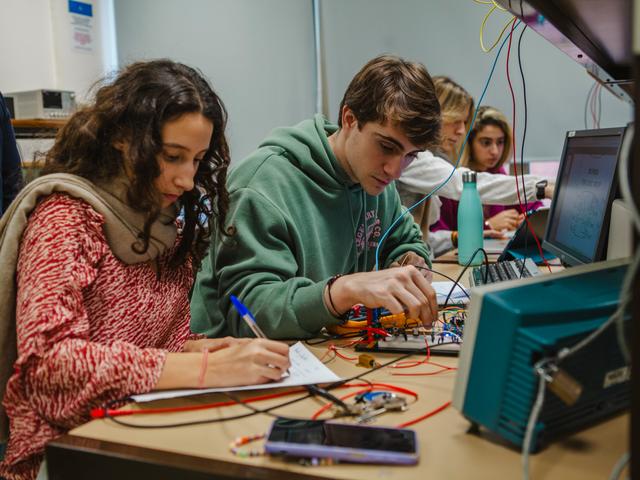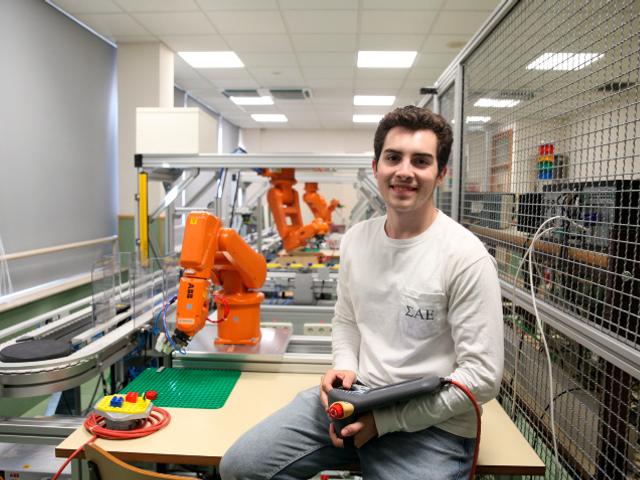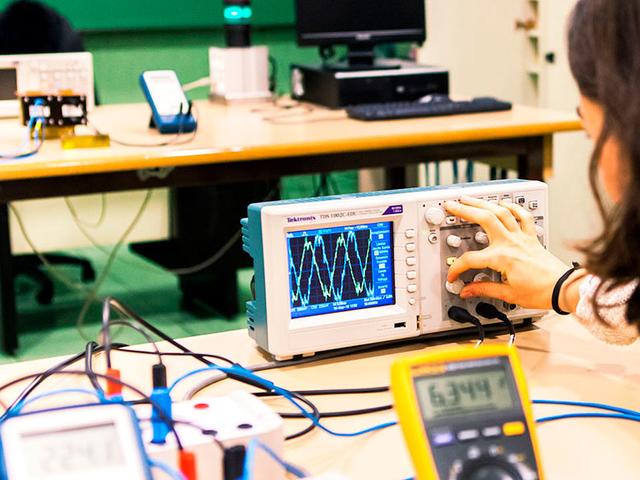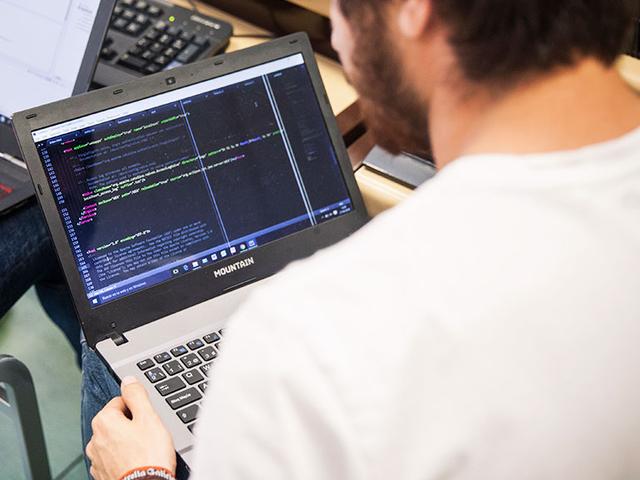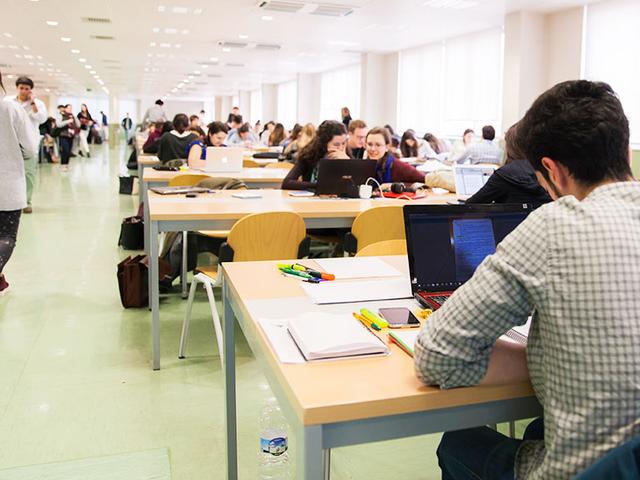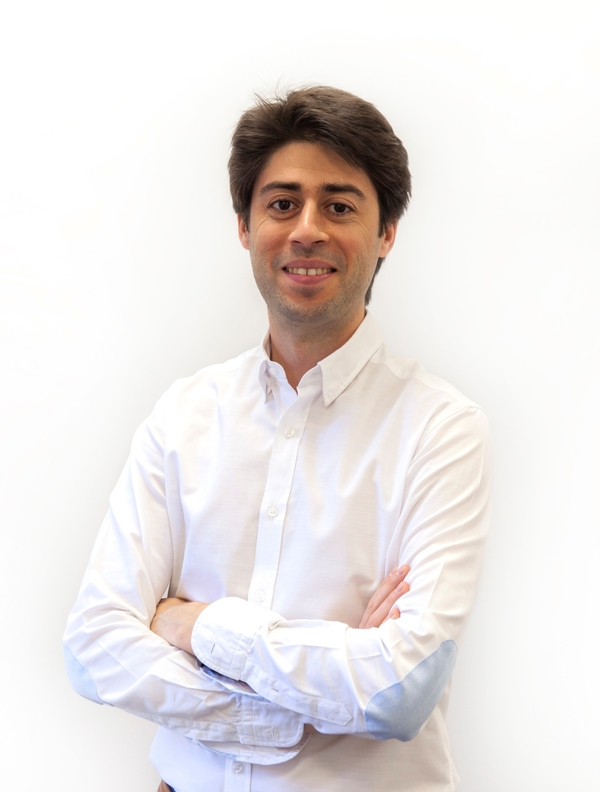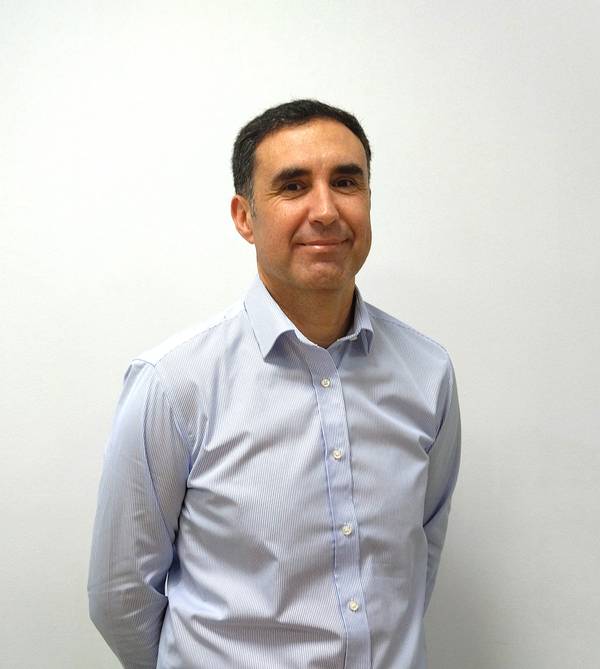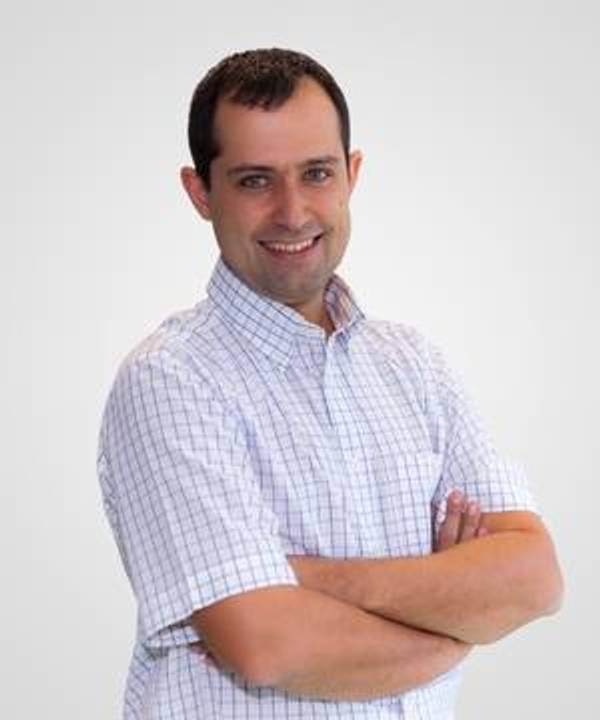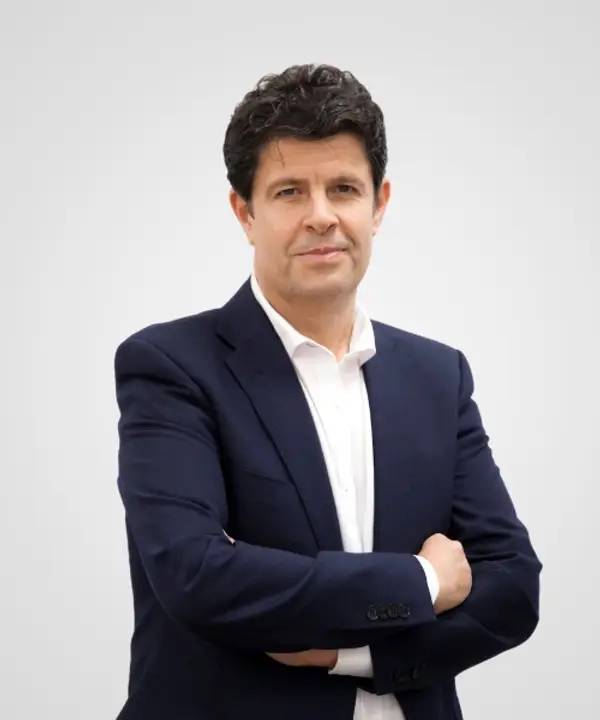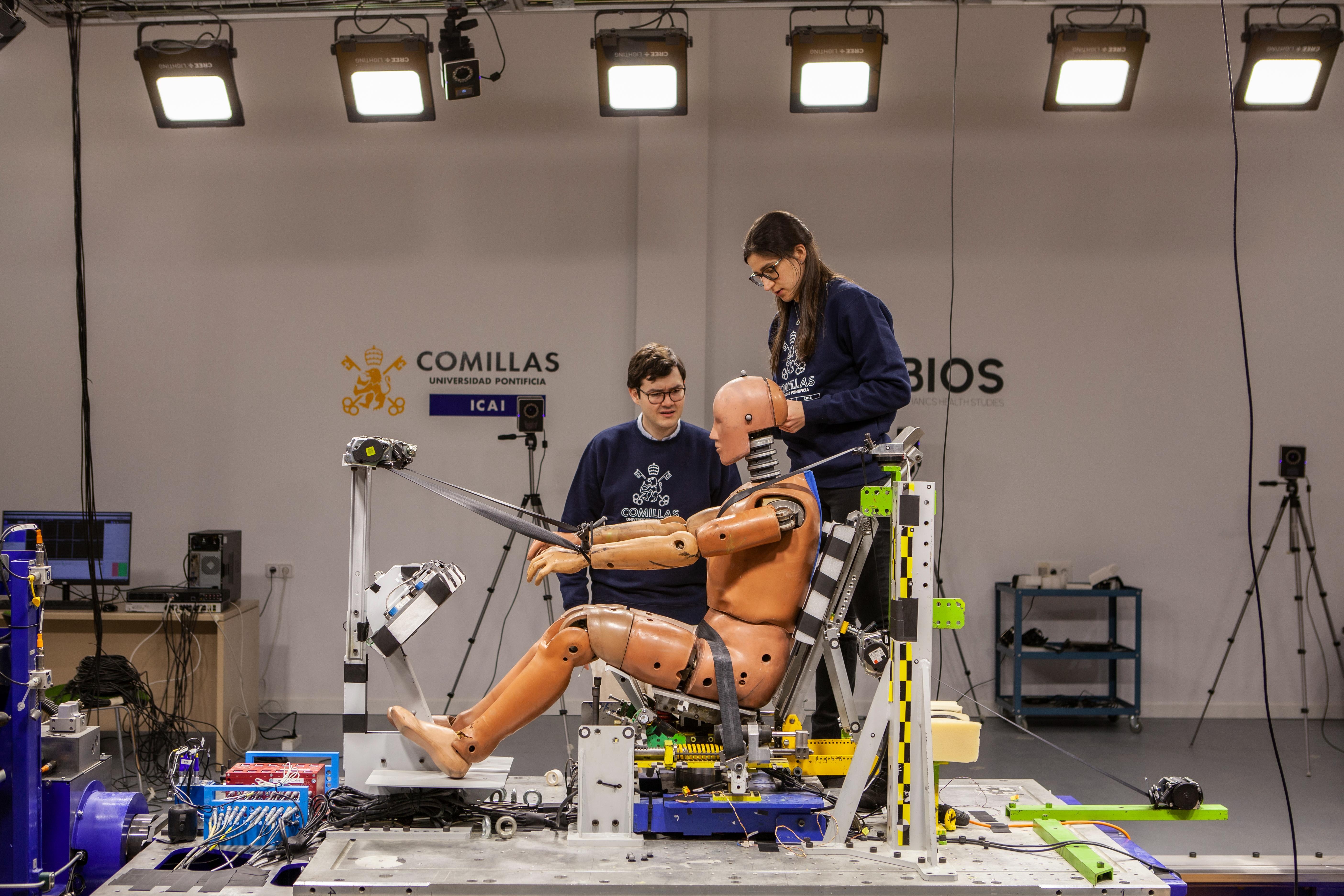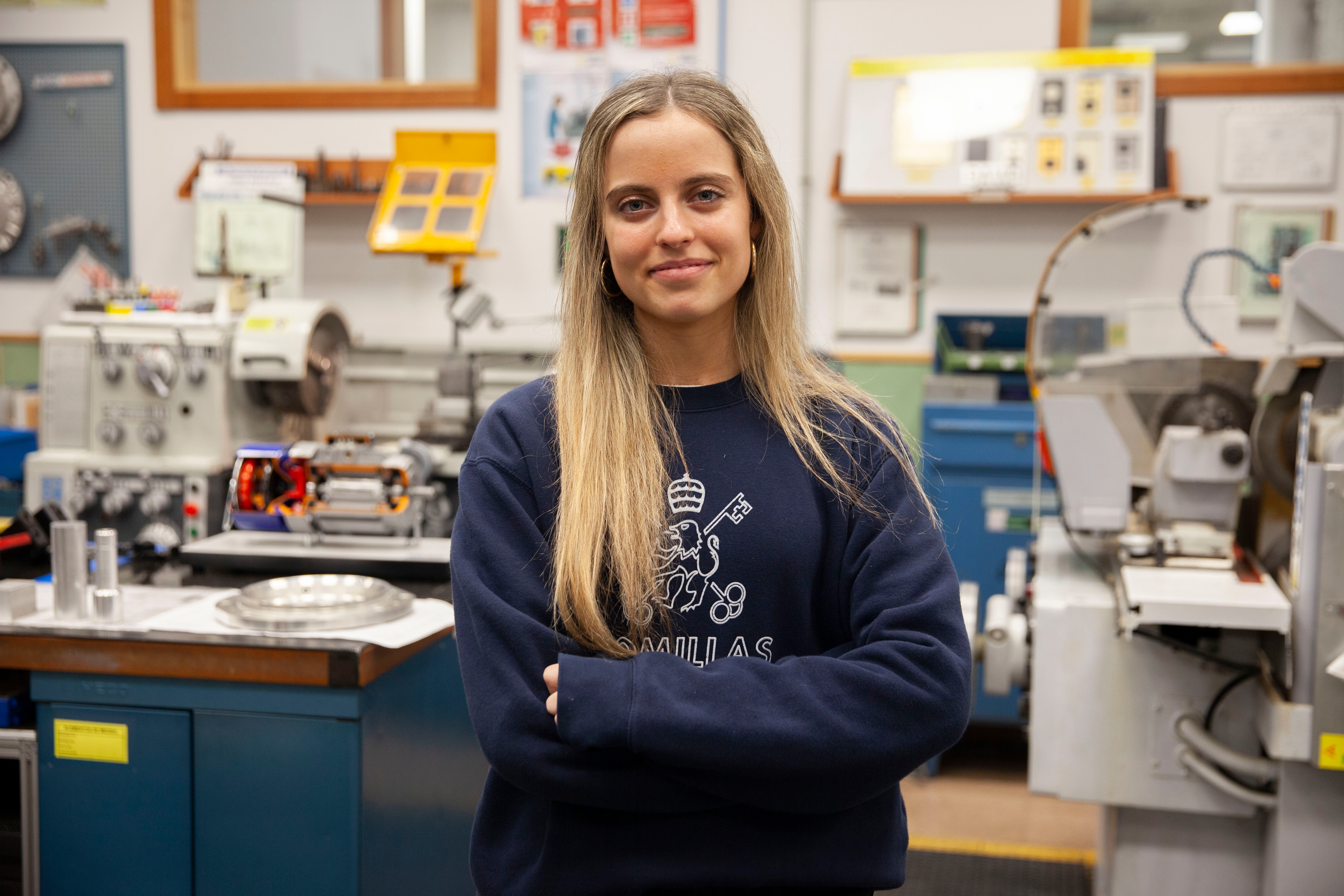
ICAI
School of Engineering
The tradition of the ICAI School of Engineering in the training of engineers began in Madrid in 1908. Today, ICAI is a polytechnic school whose academic activity focuses on Industrial Technologies, Telecommunications and Artificial Intelligence.
Schedules for the 2025-26 Academic Year
Degrees and double Bachelor's degrees
Enjoy a unique university experience by choosing from a wide range of academic programmes in different areas of study to pave the way for success in your professional career. Below are 3 of our most popular degrees, but we have many more.
Master's Degree
PhD Programs
- Engineering
- Doctorates
- English, Spanish
- 4 years full time and 7 years part time
- Engineering
- Doctorates
- English, Spanish
- 4 years full time 7 years part time
- Engineering
- Doctorates
- English, Spanish
- 4 years full time and 7 years part time
- Engineering
- Doctorates
- English, Spanish
- 4 years full time 7 years part time
Useful resources
Check out these useful resources where you can find everything you need to know.
Our figures support us
Occupation
Occupation rate of school graduates
Internationalisation
Students from the school who have carried out an exchange during their studies.
Social impact
Number of students from the university involved in service-learning projects

International
Comillas ICAI is committed to the internationalisation of its studies, professors and researchers. The school, which is part of the prestigious T.I.M.E. network, has double degree programmes and agreements with the most prestigious engineering schools in the world.

Scholarships and grants
The university, as an institution of the Catholic Church that provides a service to society, offers scholarships and grants in various forms to its students, in order to collaborate with the cost of education and to promote equal opportunities according to the individual needs of each student.

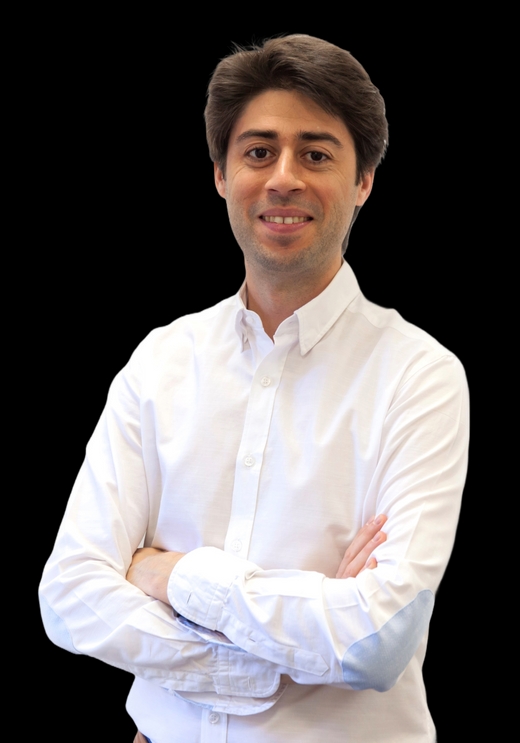
"We train the best engineers to transform the world into a more fair, humane and sustainable place where technology is at the service of people".

Relationship with companies
At Comillas ICAI we see collaboration with companies as a fundamental part of our mission. We believe that direct contact with them is the most direct way to understand the demands and concerns of society and to contribute from the values and capabilities of Comillas.
Consult our catalogue of research groups.
Research and transfer
The Institute for Research in Technology (IIT), MOBIOS LAB and the various chairs and observatories belonging to the ETSI ICAI are centers of reflection on the most important human challenges in the application of science.

Testimonials from Alumni
Engineering (Comillas ICAI)
Manuel Pérez Bravo
The doctorate at Comillas puts cutting-edge research at the service of real-world needs.
Engineering (Comillas ICAI)
Shilpa Bindu
It never ceases to amaze me how much I am growing as a researcher at Comillas. Undoubtedly, the guidance of professors and the university's training activities play an important role in enabling students to find their way into academic and industrial research.
Engineering (Comillas ICAI)
Timo Gerres
A PhD at ICAI combines the best of both worlds: challenging industrial projects while researching the future of our energy systems.
Engineering (Comillas ICAI)
Lucía Güitta
The doctorate at ICAI is allowing me to take my first steps in research through the completion of a doctoral thesis that seeks to provide a practical solution to a problem in the industrial sector, but without losing sight of the social approach that underlies it.
Engineering (Comillas ICAI)
Roberto Barrella
During my years at the MOD I have been able to work in an inspiring environment where my research has become a reality and I have been able to contribute to improving the understanding and tackling of fuel poverty in Spain and in the EU.
Ingeniería (Comillas ICAI)
Sara López de Armentia
The doctorate is a challenge in which one evolves not only on an academic and professional level, but also on a personal level. It is not a path to be travelled alone, so it is an unparalleled opportunity to learn from great professors and researchers.
Upcoming events.
Don't miss any of our initiatives
Latest news
Frequently Asked Questions
Need help? We are here to accompany you all the way.
ICAI is one of the most prestigious engineering schools both nationally and internationally, recognised for its academic excellence, thanks to its teaching staff, the promotion of practical learning and the internationalisation of our students. All of this offers you the opportunity to obtain a solid education that will prepare you to successfully develop your professional career.
The School has a campus in the heart of Madrid where you can enjoy the culture and leisure of the city and another on the outskirts that offers an exceptional natural environment.
Yes, the Internship and Employment Office informs, guides and collaborates in the insertion in the labour market of recent graduates or in the projection of the professional careers of Comillas graduates, for which it has an online tool that directly connects candidates with 5,078 companies with which Comillas maintains a relationship. During the 2017-18 academic year, 1,838 job offers were managed. Of the total number of graduates from the 2018 graduating class, 93.22% are employed, either working or furthering their studies, within six months of completing their studies.
Yes, there are different scholarship calls depending on the faculty and degree programmes, but all of them are aimed at supporting students and their families in the payment of monthly fees. In general, grants are between 40% and 75%, although in exceptional situations they can reach higher percentages. Comillas students can also access different public grants such as the Ministry of Education and Vocational Training Scholarship or the Excellence Scholarship of the Community of Madrid. In collaboration with some colleges and university residences, Comillas also develops a scholarship programme for accommodation in Madrid, aimed at those students who need to travel from other places.


